13+ Sample Music Management Agreement Templates
-
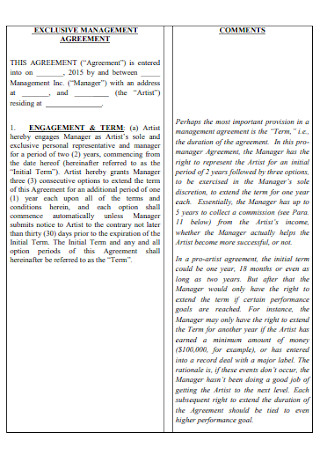
Music Exclusive Management Agreement
download now -
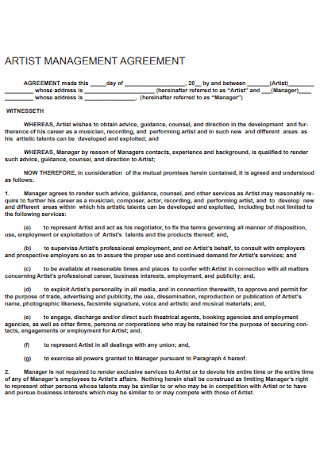
Artist Music Management Agreement
download now -
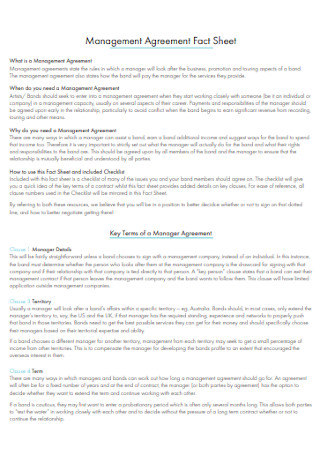
Music Management Agreement Fact Sheet
download now -
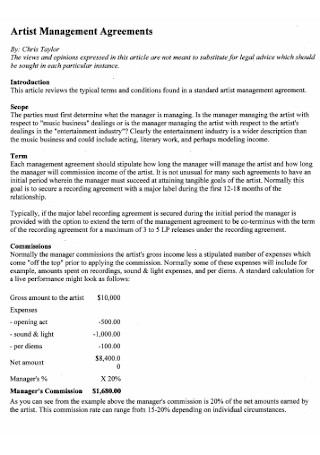
Sample Music Artist Management Agreements Template
download now -
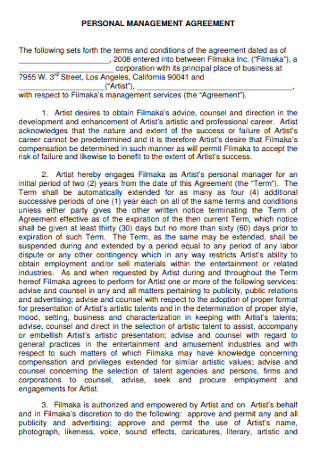
Personal Music Management Agreement
download now -
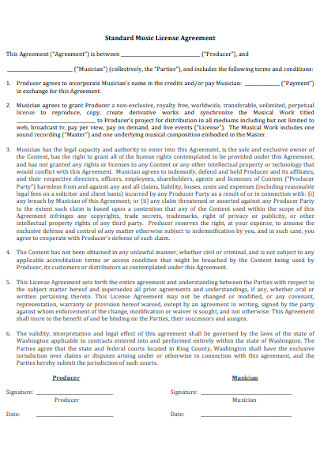
Music Management License Agreement
download now -

Online Music Distribution management Agreement
download now -
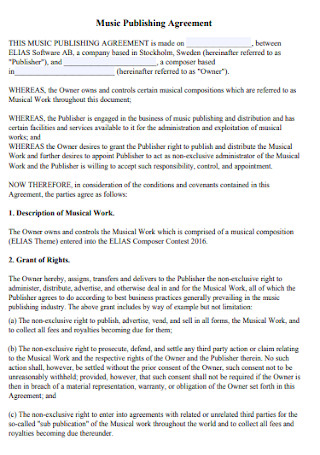
Music Publishing Management Agreement
download now -
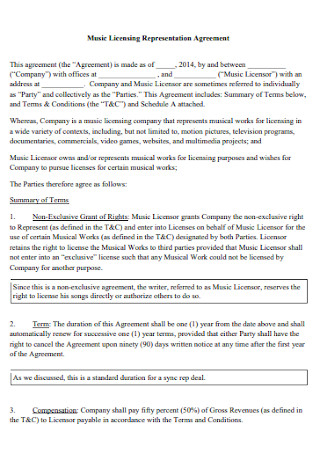
Music Licensing Representation Management Agreement
download now -
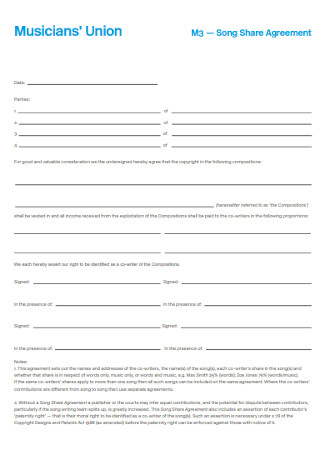
Music Song Share Management Agreement
download now -
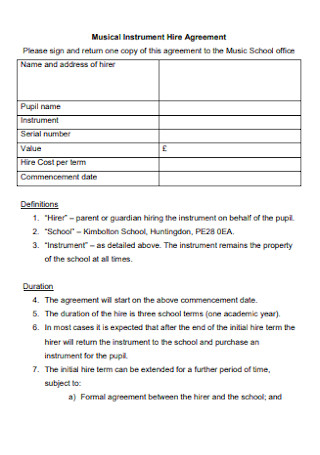
Musical Instrument Hire Management Agreement
download now -
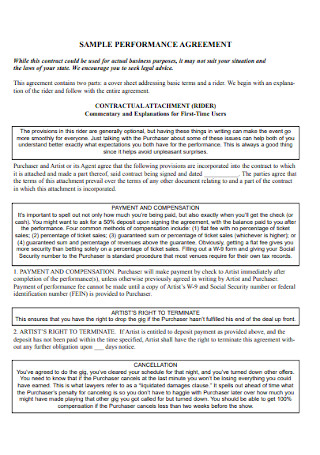
Sample Music Performance Management Agreement
download now -
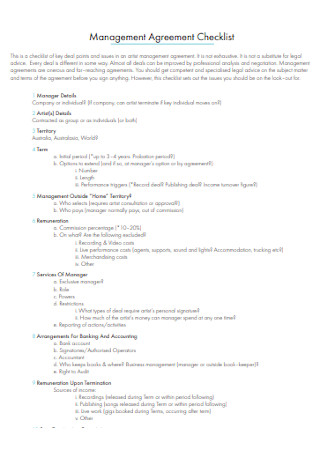
Music Management Agreement Checklist
download now -
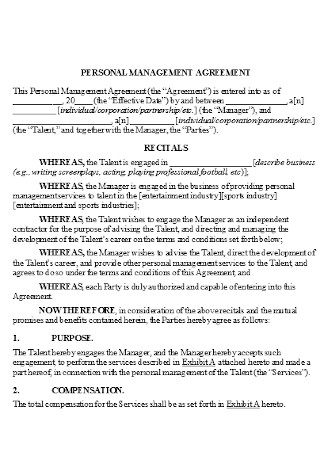
Sample Personal Music Management Agreement
download now
FREE Music Management Agreement s to Download
13+ Sample Music Management Agreement Templates
What Is a Music Management Agreement?
The Key Members of Every Music Artist’s Management Team
Benefits of Having a Music Manager
How To Make a Professional Music Management Agreement
FAQs
When do I need a music manager?
What skills should a music manager have?
Is a license necessary to become a music manager?
How long does a music management contract last?
What Is a Music Management Agreement?
Whether you are an established and well-known musician or not, there will always be a time where events and activities are too much to handle. Hence, you need to have a team that will do some of the things on your behalf. And this is where music management comes to play. Its role is to attend to activities that are beyond your control—social media marketing like Facebook or Twitter marketing, booking gigs and tours, and the likes. But, before everyone does their part, it is essential to secure an agreement first. A music management agreement is a document that presents terms and conditions, job obligations, commission agreement, etc. of both you and the management have discussed. It is an official contract that ensures both parties will do their end of the bargain.
According to Statista figures, the music industry in the United States placed a revenue of almost $20 billion in 2018. Meanwhile, Statista states that the most popular musician of the year 2019 was the Hip-Hop artist Post Malone with a music consumption of almost 4.36 million times. He was then followed by other well-known artists like Drake, Billie Elish, and Taylor Swift. When it comes to music genre consumptions, hip-hop and rap are the leading and most popular amongst other genres, with 24.7 percent music consumption in the United States.
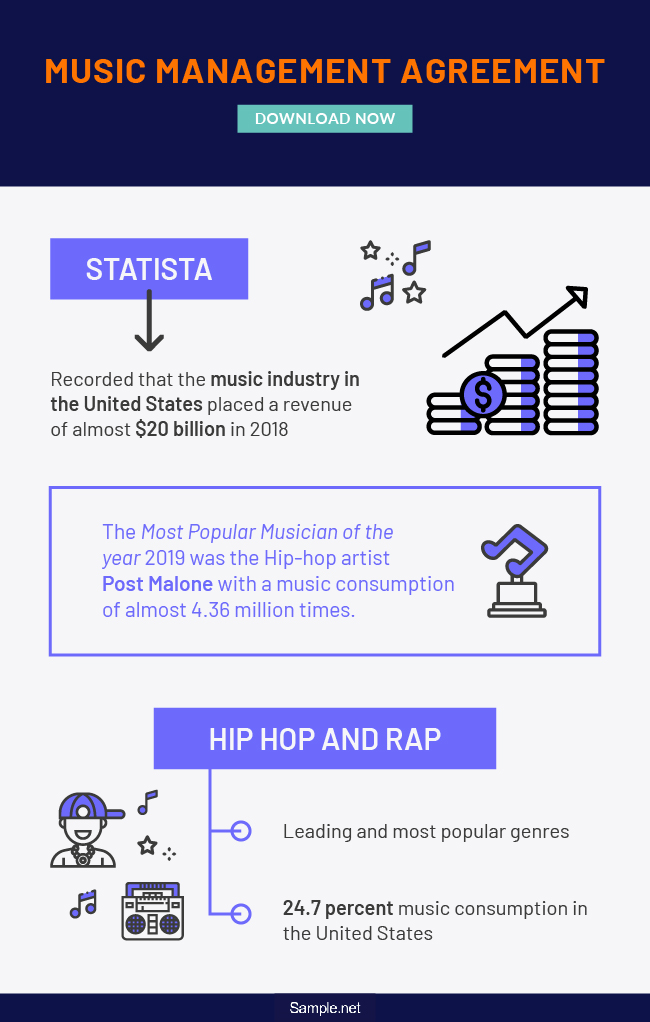
The Key Members of Every Music Artist’s Management Team
For every successful music artist, there’s a management team composed of professional and hardworking people behind. Exploring the ever-growing music industry and getting the heart of the people is not that easy. There are a lot of responsibilities and activities that you need to do. That is why it is important to have trustworthy professionals that can do some of the tasks for you. Here are the important members that should be part of the music management team.
Music Manager
Music managers are typically the right hand of every musical artist. They may come from different backgrounds, but they all serve the same purpose, to manage daily business-oriented activities. Some music managers also create marketing plans to advertise a musicians’ musical content. Basically, music managers are the building blocks of your management team. They should know the ins and outs of the music industry.
Live Agent
Live agents are also known as booking agents. The role of a live agent is essential in the music management team because they are the ones that will pitch and negotiate live shows and concerts on behalf of the music artist. With this, music agents should establish relationships with event and show promoters. Another role of the music agent is to manage tours—from booking flights, creating tour itineraries, and the likes.
Publicist
Another essential member of the music management team is the publicist. Publicists are also called content strategists and brand builders. Their role is to pitch the story of the music (and, of course, the music piece itself) to well-known writers and publications. They know precisely when and how to drop buzz about the artists’ careers. Publicists should also work closely with photographers and videographers for promotional content.
Music Publisher
When it comes to music, there are necessary payments that should be made whenever the music artists’ compositions are played. And this is where music publishers are required. Their role is not only to spread words about your music but also to gather royalties—the payment term. Music publishers also work on pairing artists with other recording artists for music collaborations.
Lawyer
It is safe to say that no matter how established a music artist you are, it is always important to have a good lawyer on your team. Entertainment lawyers serve as your eyes when it comes to signing contracts. But much more than that, lawyers also make sure that the artist will receive the exact amount of revenues and royalties. They also ensure to put the artists’ interests at best.
Distributor
Distributors are much like promoters. Their role is to deliver the artists’ music to thousands of music-streaming websites around the world. Basically, they are music marketing managers. However, most of the established streaming services only accept submissions of music to well-known and big distributors. Hence, it is important to select a distributor that will and can distribute music to big streaming websites.
Benefits of Having a Music Manager
You don’t always need to have people working for you, but it is fair to say that it does something great in your music career. And music managers are at some point good with that. Here are the benefits of having professional music managers.
How To Make a Professional Music Management Agreement
Before the signing of a contract, you have to understand what goes around your music management agency agreement. So, whether you are the music artist or representative from the music management, you need to understand the essential information that should be present in a music artist management agreement. To help you with that, we have presented you with some simple ideas. Here’s how:
Step 1: Get a Template First
Yes, music management agreements are not that difficult to make, but why not get and download a pre-made music artist agreement template to make the process quick and hassle-free? You just need to download the best template that suits your objectives. With that being said, browse on our well-made music management license agreement templates with professionally written suggestive content that you can easily customize. Utilizing our sample templates will be such a good choice.
Step 2: List Down the Parties Involved
Now that you have already downloaded a music management agreement template, it’s now time to edit out its content. Begin with listing down information about the parties involved in the contract, in this case, the music artist and the music management. Present information that is related to specific terms, such as names, individual titles, contact information, address, etc. Knowing the professionals that are involved in the deal is essential to make the music management agreement clear and accurate.
Step 3: Discuss Terms and Obligations
Once you have already identified the essential parties in the music management agreement, the next important elements that should be included are the terms and obligations. By this, it is important to discuss the terms and obligations of the music management and the services and responsibilities they cover. It is also necessary to include the music artists’ terms in the music management agreement. Terms of service are important so that both parties will be informed of what should and should not be done.
Step 4: Specify the Agreement Timeframe
Every agreement or contract has an end. That is why the music artist management contract must state the timeframe of the agreements’ effectiveness. Is the agreement for short-term or long-term purpose? Specifying the music management agreements’ timeline is also important to avoid complications once the signing of contracts is made.
Step 5: Secure a Signature
Once you have already incorporated the essential details that should be included in your music management agreement template, the last thing you need to do is to secure a signature from both parties. Signatures are important because it testifies that both parties have agreed to what statements are presented in the music artist contract. Without it, the agreement will be void.
FAQs
When do I need a music manager?
Getting a music manager depends on the music artist or band. When you think that things are getting out of hand like answering emails and calls, bookings, guesting, interviews, promotions, digital marketing activities, etc., then that would be the time to hire a music manager.
What skills should a music manager have?
Well, it is no doubt that music managers come with a handful of responsibilities. That is why it is essential that a professional and excellent music manager should be equipped with skills, among others. A music manager should have the ability to multitask, be honest, financially literate, wide knowledge in music, and a passion and heart for music management.
Is a license necessary to become a music manager?
Based on an article featured in Medium, anyone can be a music manager. In fact, unlike other artist representatives like lawyers and agents, music managers are artist representatives that do not necessarily need experience and license. However, states like New York, California, and Florida have required anyone who pursues employment in the industry should have a license.
How long does a music management contract last?
Usually, the term for music artist management contracts ranges from two to three years. However, possible extensions may be observed once every objective and goal is met. Nevertheless, it is important that both parties, the music artist and the music management, are in the same phase and discuss how long the music management agreement should last.
And just like the song Wind Beneath My Wings by Bette Mindler, music artists will not be able to fly high with their careers without a team of expert music management professionals. And, better music management makes all music artists successful in their career and by that, a booming music industry. But before establishing a strong relationship between music artists and music management, both should need to discuss terms and conditions using a well-written music artist management agreement.
